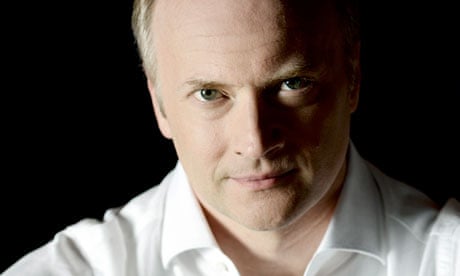The LSO's new season opened with a concert performance of Rigoletto conducted by Gianandrea Noseda, effectively a transfer, albeit with a few cast changes, from the Aix-en-Provence festival where both orchestra and maestro have spent part of the summer performing Verdi's masterpiece in an apparently provocative staging by Robert Carsen. Despite occasional vocal flaws, the London performance was often remarkable.
In his element in Verdi, Noseda powered his way through the score with a combination of high-voltage intensity and fierce insight. The pervasive mood was one of nerve-wracking tension, a reminder that the work itself is first and foremost a study of the moral corruption attendant on the abuse of power, and that it should never be treated or accepted as safe. Tempi were on the fast side, with emotions in constant danger of eruption. The pressure persisted even in the duets between Rigoletto and his daughter, where many interpreters, overlooking the malaise that undermines the tenderness, offer temporary respite and calm. Informed, one suspects, by the experience of a whole run of the work, the playing was superb in its energy and detail.
Noseda's approach was very much matched by that of his Rigoletto, dark-voiced Greek baritone Dimitri Platanias, who persuasively captured the seething rage and potential violence beneath the jester's obsequious servility. Desirée Rancatore was an exquisite Gilda, despite a rather grand platform manner that didn't always suggest mangled innocence. More problematic was Saimir Pirgu's aggressive Duke, occasionally effortful, short on poetry, a sexual bully rather than a seducer. There was sharply focused singing from the men of the London Symphony Chorus, and the smaller roles were consistently well taken: Gábor Bretz's dangerous Sparafucile and Wojtek Smilek's ferocious Monterone were particularly outstanding.

Comments (…)
Sign in or create your Guardian account to join the discussion